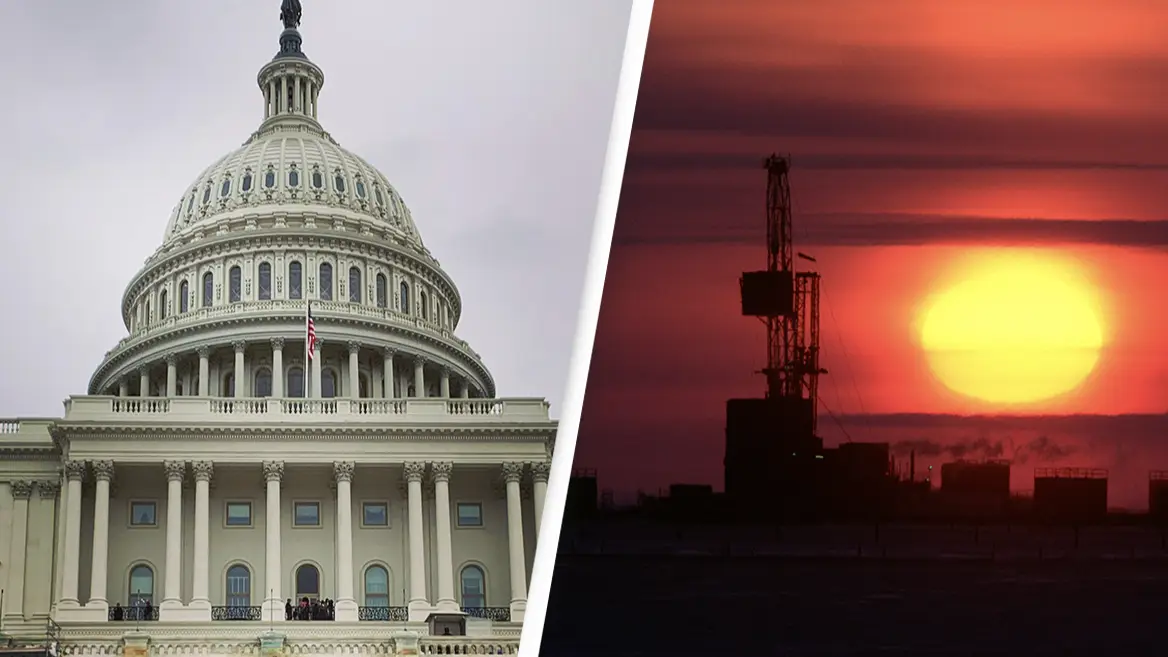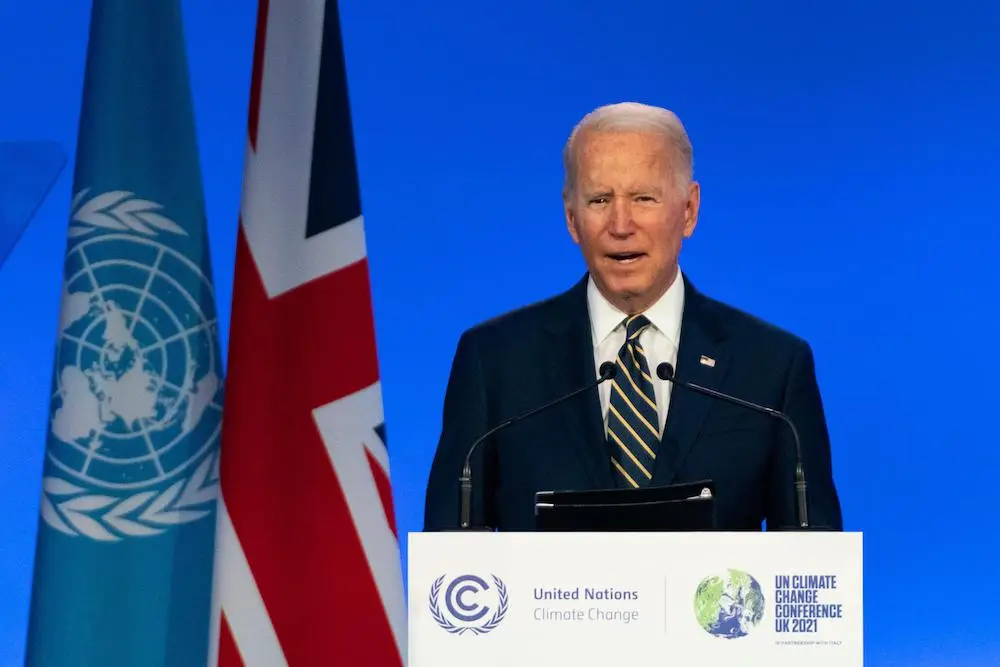
The Senate passed a historic $750 billion energy, tax and health care bill over the weekend, with $370 billion of the budget set to address the climate crisis.
Marking a major moment for President Joe Biden's Democratic party, the package – which was passed yesterday, August 7 – is the largest climate investment in US history.
The measure is set to have an impact on reducing carbon emissions, with analysis from Senate Majority Leader Chuck Schumer's office suggesting it could slash the country's emissions up to 40% by 2030, CNN reports.
Tax credits will also be made available for renewable energy sources such as solar panels and wind turbines, as well as to incentivise US customers to buy used and new electric vehicles.
Advert

Speaking about the move in a statement, Biden said 'Senate Democrats sided with American families over special interests' by voting to pass the bill.
He later added: "This bill also makes the largest investment ever in combatting the existential crisis of climate change.
"It addresses the climate crisis and strengthens our energy security, creating jobs manufacturing solar panels, wind turbines, and electric vehicles in America with American workers.
"It lowers families’ energy costs by hundreds of dollars each year."
In a statement, US PIRG Environment campaigns director Matt Casale described the ruling as a 'big deal'.
“Not everything in the bill is perfect, and there remains work to do, but the clean energy tax credits in particular will inject a jolt of (renewable) energy into state and local efforts to reduce emissions and clean the air," he said.

"They will help make it affordable for Americans of all stripes to switch to electric vehicles, put solar panels on their roofs and purchase cleaner, healthier electric appliances that don’t pump pollution in our homes and air.
"The funding in the bill will help electrify the US Postal fleet and help communities clean up toxic Superfund sites, while requiring polluters to bear the cost.
"In addition to making major reductions in greenhouse gas emissions, these provisions will significantly reduce air pollution that makes people sick."
Beyond the portion of the fund dedicated to tackling the climate crisis, health care has been addressed by giving Medicare the power to negotiate drug prices while also extending Affordable Care Act subsidies for a further three years.

The proposal also includes a 15 percent minimum tax on large corporations, applying to companies with profits of more than $1 billion.
Concluding his statement on the Inflation Reduction Act, Biden said: "It pays for all this by establishing a minimum corporate tax so that our richest corporations start to pay their fair share. It does not raise taxes on those making under $400,000 a year."
If you have a story you want to tell, send it to UNILAD via [email protected]
Topics: US News, Health, Climate Change, News, Environment